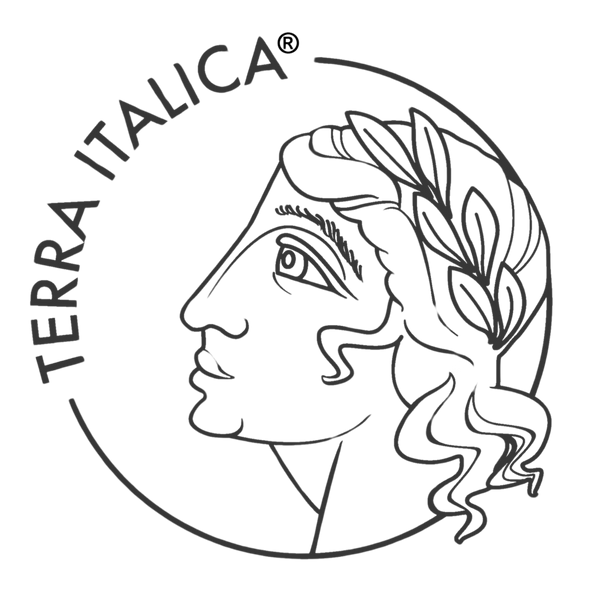What do we do
In the corporate statute of TERRA ITALICA it is written:
Corporate purpose:
The company's corporate purpose is: 1. the valorisation, promotion, safeguard and propaganda of love for nature, the territory and activities connected, from a cultural, artistic, naturalistic point of view, to physical and mental well-being in general; 2. the valorisation, promotion, protection and propaganda for the research and use of spontaneous and non-spontaneous flora, the natural heritage in general, for food, cosmetic, artistic, dyeing purposes and for anything else permitted by law; 3. research and valorization of old and new methods of use, conservation and transformation of plant products for food and cosmetic purposes; 4. the valorisation, promotion, protection and propaganda for the knowledge of the cultural heritage of the activities handed down for centuries in the field of manual arts…
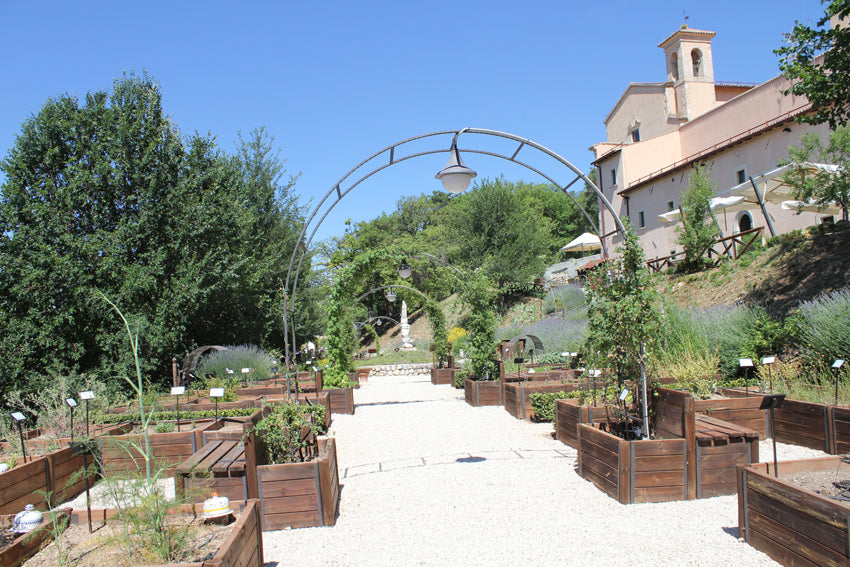
It is a statute that takes up all the purposes for which the Cultural Association “Idee in Movimento” was founded in Navelli by will of Lamberto Formiconi in January 2012. The Association was the natural consequence of Lamberto's meeting in 2005 in Barisciano with the botanists of the CRFA (Apennine Floristic Research Center) of the Gran Sasso and Monti della Laga Park, with whom a close collaboration on the recognition, research and use of spontaneous plants in the area.
Interesting developments emerge from this chemical-botanical partnership to enhance nature and attract tourists by offering them guided tours for the recognition, collection and use of various floristic species of the Park.
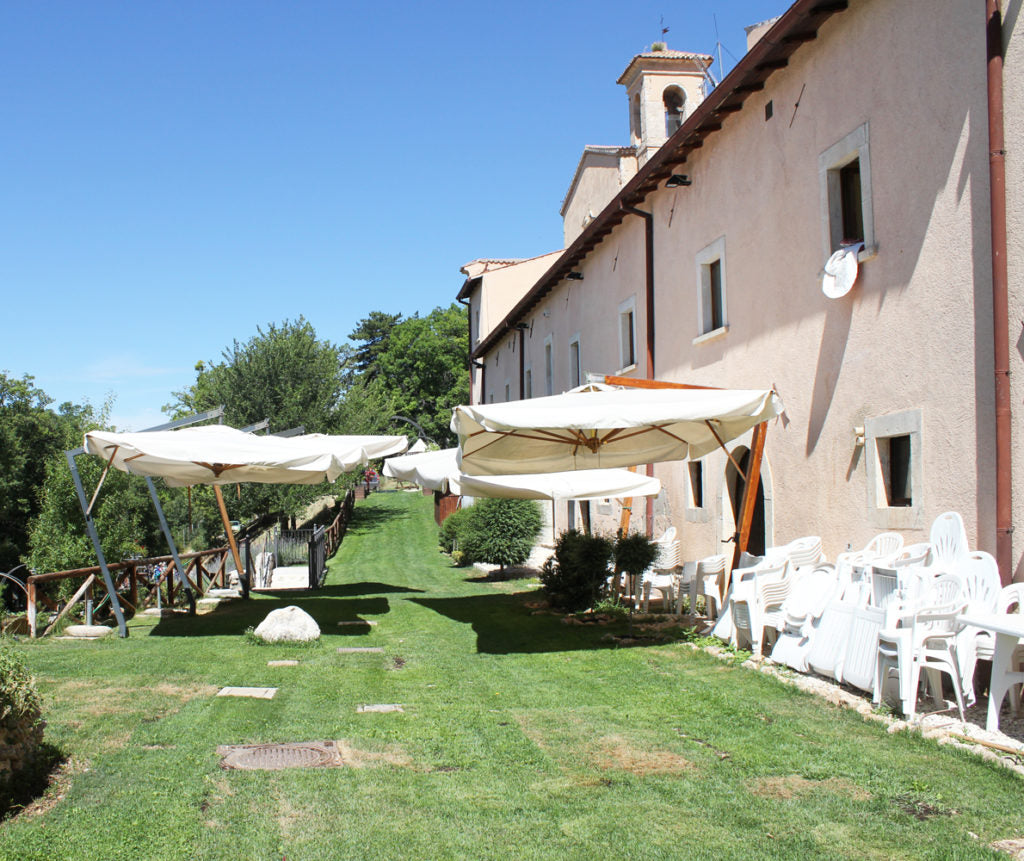
For this purpose, courses are organized in: Phytoalimurgia (nutrition with wild plants), Production of Natural Soaps (using plants with phytocosmetic properties), Natural Dyeing (using dyeing plants) and guided tours of the rare plants of the area.
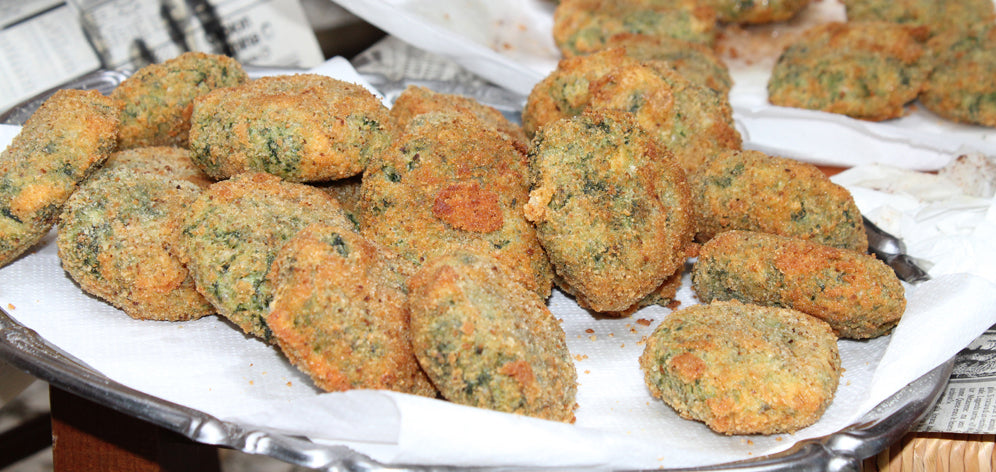
From the moment of the birth of TERRA ITALICA all these activities have been continued, no longer with a hobbyist but entrepreneurial spirit, as they are aimed at the economic valorisation of the natural heritage of the territory. Most of the courses are held in Barisciano at the CRFA of the Gran Sasso and Monti della Laga Park, in the splendid setting of the old monastery and the Botanical Garden of the Park.
Our Courses
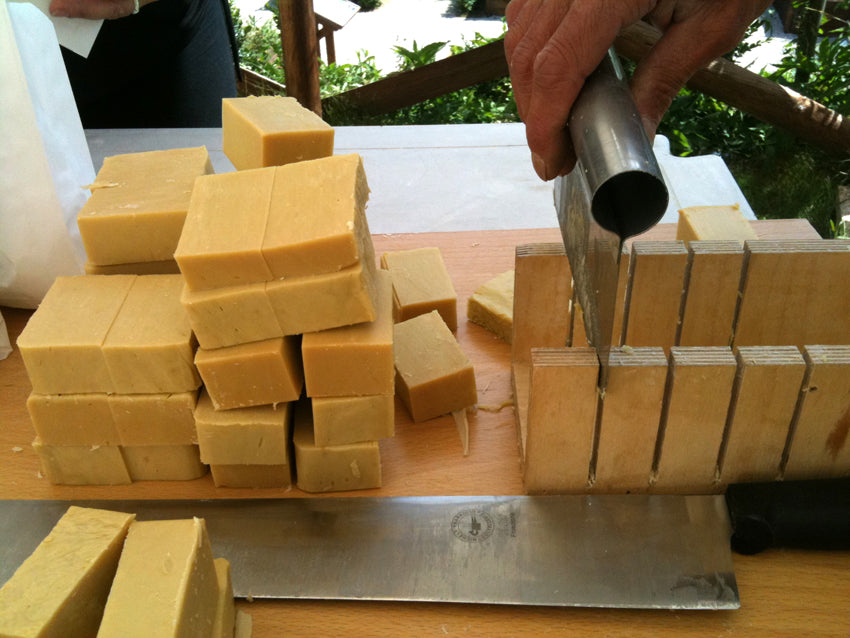
Phytoalimurgia courses
Normally held twice each year, one in spring, the other in early autumn, they usually last 2 days. On the first day we go out to collect spontaneous edible plants in the Park territory, together with a botanist and an expert phytoalimurgic chef (many of the plants are listed in "THE HERITAGE OF THE TERRITORY"). In the afternoon the participants are guided in the preparation and processing of the collected herbs and in the cooking of the menu that will be served at dinner; Lamberto will show them how to prepare delicious sauces and syrups with some collected plants. The next morning we will continue to work with other herbs to prepare the lunch menu. In the afternoon the botanist will guide each member in the preparation of a precious herbarium of the plants collected and eaten, so that the participants can later find the tastes and flavors they enjoyed through those dried plants.
Natural Dyeing Courses
Dyeing wool in Abruzzo means rediscovering the ancient traditions of the past, the same dyeing plants that we find are part of the history of the area. We also organize 2 of these courses a year, it is easy to collect dyeing plants, the difficulties are organisational, since it would require very long working times dedicated to each single plant, so we rely on work sheets created previously so that the course can run out in two days.
Over the two days, dyes will be made with the most interesting colours, yellow (Reseda lutea or luteola), red (Rubia tinctoria), blue (Isatis tinctoria, woad), while a botanist will guide each member in the preparation of the other plants collected. of a precious herbarium, which will be integrated with educational sheets of tinctures that Terra Italica has created over the years of activity. Each participant will bring with them, in addition to the binder with the Herbarium, also the wool dyed during the course.
Courses for the production of Natural Soaps
they are the most requested courses, also because they are held by a researcher who has become an institution in the soap making field, his continuous research in the field means that every time his explanations are enriched with new things. In Lamberto's courses, which last 2 days, you learn to produce solid and liquid soaps for the person and laundry, made both hot and cold, with the same recipes that he uses in his laboratory. You are taught how to produce them the oleolites, but above all, and this is the most important thing, we delve into the world of the use of natural soaps, the relationship that these have with the microbiota of the skin and how this relationship becomes increasingly closer in light of the scientific research that Lamberto also follows and leads personally in collaboration with the University of Chieti. In the courses there is always the botanical part, with the recognition and collection of plants for cosmetic use and the extraction of the active ingredient (oleoliths), with subsequent creation of the herbarium of the plants.
Visit to the flowering of a unique plant in the world, the Goniolimon italicum
if you want to enhance the natural heritage of the area it is impossible not to make this plant known. The only places in the world where it lives are the L'Aquila basins; it is a plant, whose origin of the species is the Asian steppes. The coincidence that it grows in places where there are old settlements of the Italic peoples suggests that it was brought with them in the migrations from the east by the pre-Italic peoples, perhaps as if it were a sacred plant, given the particularity of the flowers. Every year we organize a walk in the locality of S. Eugenia in Navelli, to admire its beauty and raise awareness among people for the protection of this heritage, perhaps even accompanied by representatives of the Forestry Corps who are its true guardians.
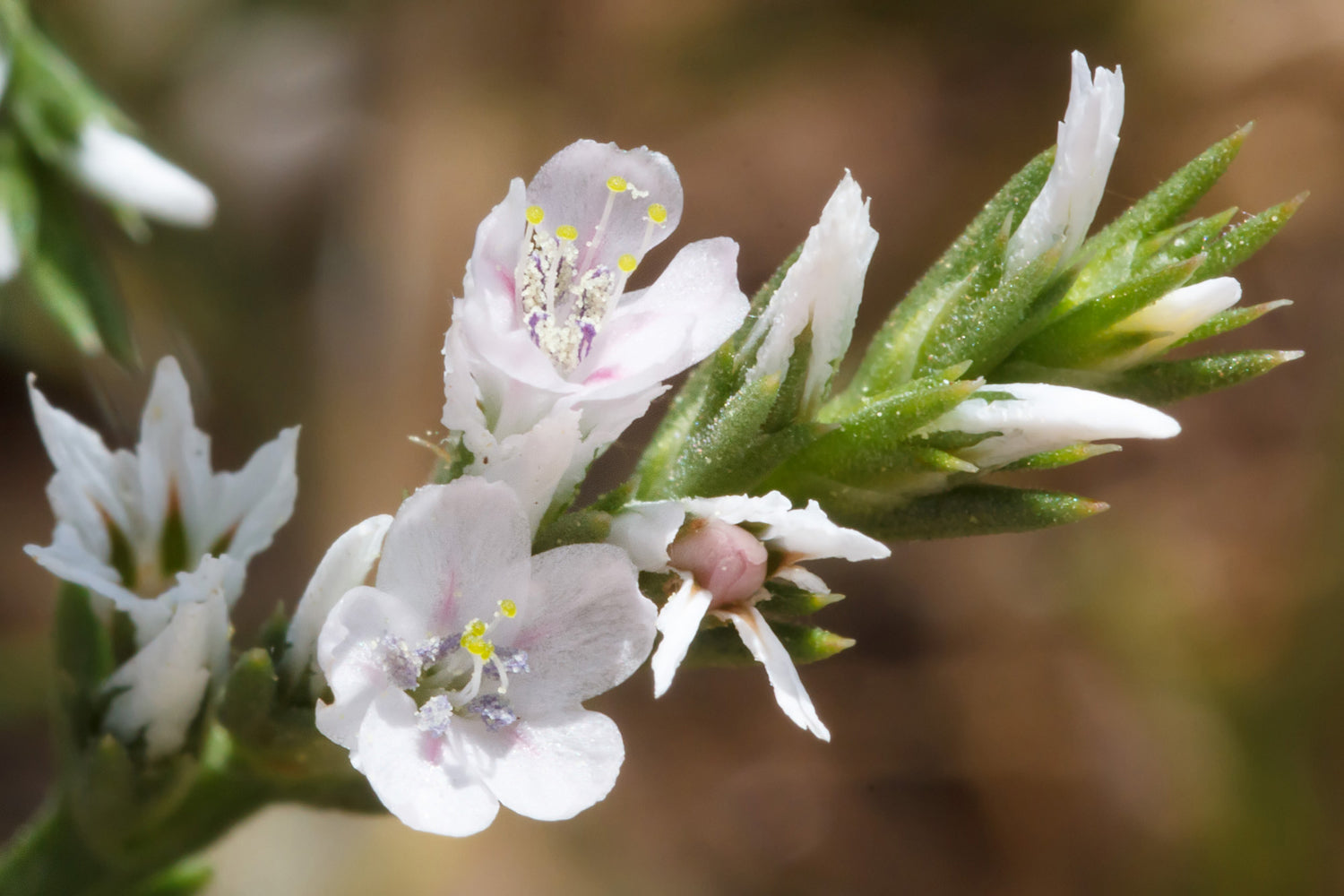
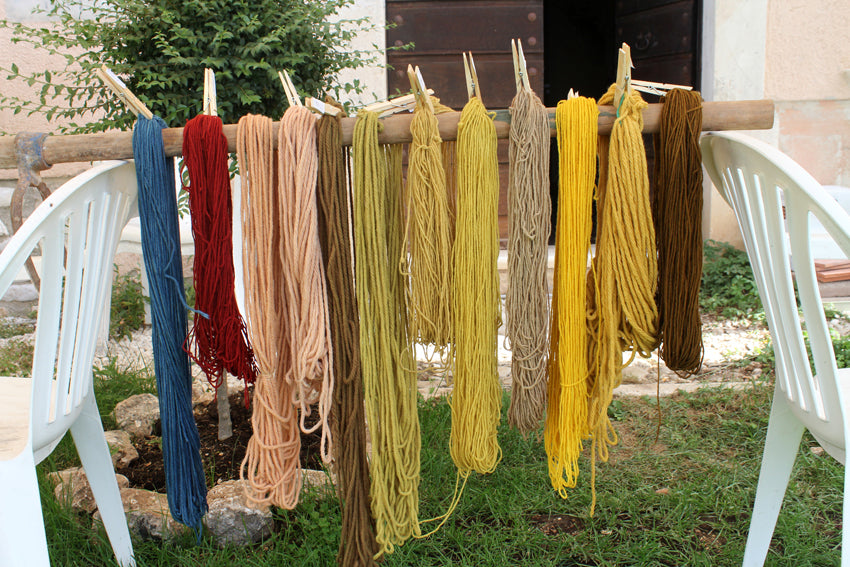
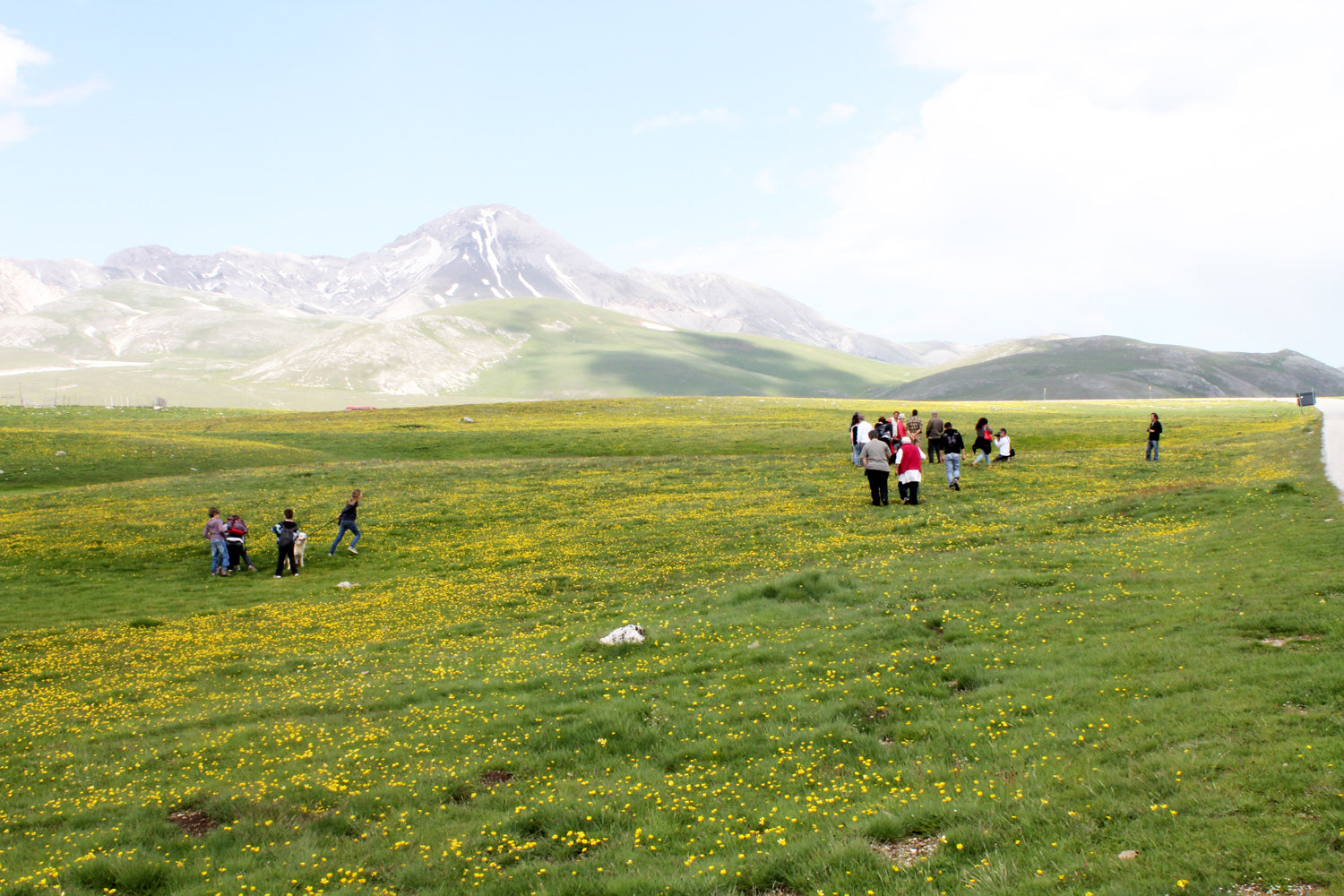
Blog posts
View all-
CORSO BELLI E SANI CON LA NATURA - NUOVE DATE
Sabato 8 e Domenica 9 Febbraio 2025 Sabato 1 e Domenica 2 Marzo 2025 Corso per la produzione di saponi naturali arricchiti con estratti di piante cosmetiche c/o Laboratorio “La...
CORSO BELLI E SANI CON LA NATURA - NUOVE DATE
Sabato 8 e Domenica 9 Febbraio 2025 Sabato 1 e Domenica 2 Marzo 2025 Corso per la produzione di saponi naturali arricchiti con estratti di piante cosmetiche c/o Laboratorio “La...
-
Miele Zafferano
Lo Zafferano: Un’antica pianta medicinale e un alimento funzionale innovativo Lo zafferano è una spezia pregiata che si ottiene dagli stimmi essiccati della pianta Crocus Sativus L., ed è conosciuto...
Miele Zafferano
Lo Zafferano: Un’antica pianta medicinale e un alimento funzionale innovativo Lo zafferano è una spezia pregiata che si ottiene dagli stimmi essiccati della pianta Crocus Sativus L., ed è conosciuto...
